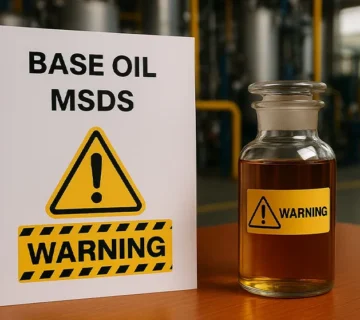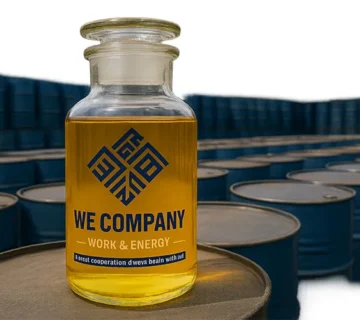The Ultimate Guide to Mineral Base Oil: Uses, Benefits
Mineral base oil is the foundation of many lubricants and industrial fluids, trusted for its stability, cost-effectiveness, and broad applications. If you’re looking to understand mineral base oil, its advantages, and why it remains a top choice across industries, you’re in the right place.
In this article, we’ll cover what mineral base oil is, its key uses, the benefits it offers, and answer the most common questions people ask.
What is Mineral Base Oil?
Mineral base oil is a refined petroleum product derived from crude oil. It serves as the primary ingredient in the formulation of motor oils, industrial lubricants, and other specialty oils. Depending on the refining process, mineral base oils are typically classified into three groups:
- Group I: Solvent-refined with moderate purity.
- Group II: Hydroprocessed for higher purity and better performance.
- Group III: Severely hydrocracked, offering near-synthetic quality.
Understanding the groups helps when choosing the right oil for your application.
Main Uses of Mineral Base Oil
- Automotive Engine Oils
- Hydraulic Fluids
- Gear Oils
- Industrial Lubricants
- Metalworking Fluids
- Process Oils in Rubber and Plastics
Because of its versatility, mineral base oil remains heavily used across many industries despite the rise of synthetic oils.
Key Benefits of Mineral Base Oil
- Cost-Effective: More affordable compared to synthetic alternatives.
- Wide Availability: Produced globally in large volumes.
- Good Lubricity: Provides essential protection for mechanical parts.
- Thermal Stability: Handles moderate temperature ranges effectively.
- Easy Blending: Works well with various additives to enhance performance.
These benefits make mineral base oil a practical choice for many users who prioritize value and performance.
Why Mineral Base Oil is Still Relevant
Despite advancements in synthetic oils, mineral base oils remain widely used. They meet the needs of standard operating conditions, are cost-efficient, and are perfect for applications that don’t require extreme temperature or pressure resistance.
Top 10 FAQs About Mineral Base Oil
1. What is mineral base oil made of?
Mineral base oil is made from crude oil that is refined to remove impurities and enhance stability.
2. Is mineral oil the same as mineral base oil?
Not exactly. Mineral oil usually refers to a highly refined, colorless, and odorless oil used in cosmetics and medical applications, while mineral base oil is used mainly in lubricants.
3. What are the types of mineral base oils?
There are Group I, Group II, and Group III mineral base oils, differentiated by their refining processes and purity levels.
4. How does mineral base oil differ from synthetic oil?
Mineral base oil is derived directly from crude oil, while synthetic oil is chemically engineered to provide superior performance under extreme conditions.
5. Is mineral base oil good for engines?
Yes, especially for older engines and moderate operating conditions. However, newer engines often perform better with synthetic oils.
6. Can mineral base oil be mixed with synthetic oil?
It can be mixed, but it’s better to consult your engine or equipment manufacturer for recommendations to avoid performance issues.
7. What industries use mineral base oils the most?
Automotive, manufacturing, agriculture, and heavy equipment industries are major users of mineral base oils.
8. How is mineral base oil refined?
Through processes like solvent refining, hydroprocessing, and hydrocracking, depending on the desired quality and group classification.
9. How long does mineral base oil last?
It depends on the application, but typically, mineral-based engine oils need changing every 3,000 to 5,000 miles.
10. What are the advantages of Group II mineral base oil?
Group II oils offer better oxidation resistance, lower sulfur content, and improved performance over Group I oils, making them ideal for higher-demand applications.
Contact Work and Energy Company
WhatsApp: (+971) 585992028
Phone: (+971) 58 599 20 28
Email: info@workandenergy.com
Office Address: No. 106, Sabkha Tower, Deira, Dubai, UAE






1 Comment